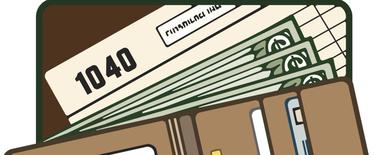Tax Preparation Blog
Letters Of Confidentiality And Business Consultants
by Tax Master DFW on 10/06/14
Letters Of Confidentiality And Business Consultants
Keywords:
#Arlington_Tax_Preparation, #Tax_Preparation, #Tx_Tax_prep, #Texas_Tax_Preparation, #Arlington_Tax_Prep, #Arlington_TX, #Tax_Prep, #DFW_Tax_Prep, #Tax_Filing, #Taxes, #Lewisville_Tax_Prep, #Lewisville_Tax_Preparation, #DFW_Tax_Preparation, #Arlington, #Tarrant_County, #Reduce_Taxes, #Tax_Refunds, #Pay_Taxes, #Tax_Help, #Bookkeeping, #DFW_Bookkeeping, #Investing, #tax_bookkeeping, #DFW, #Texas, #North_Texas, #Filing_Taxes, #1099, #W-2, #W-4
For your business to be the best that it can be, you
want to know that your business consultant is going to
have your business best interests at heart.
You want to know that you can count on them not to
reveal secrets about your business and that everything
that you talk about is going to remain confidential.
One of the common misconceptions about letters of
confidentiality is that they should only be used when
the business consultant is going to be with your
company for a long time, and not for short term
employees.
A letter of confidentiality should be used anytime
when you are disclosing important information about
your company to someone, such as your trade secrets or
the amount of money that you make.
Another common misconception is that every consultant
that you hire is going to go out and reveal the
secrets of your company to every person on the street.
Chances are that they will not, but they might say
something in passing. If they have signed a letter of
confidentiality, they are going to think twice about
what they say.
One other thing to ask a consultant that you are
interviewing is if they will continue to work for your
competitors, or if they will stop.
This, of course, is a conflict of interest and the
last thing you want to do is to find out that they are
giving the same advice to the very people that you are
in competition with.
Make sure that you feel comfortable with possible
consultants during the interview and feel like you can
trust them.
Make Use Of The Written Word
by Tax Master DFW on 10/06/14
Make Use Of The Written Word
Keywords:
#Arlington_Tax_Preparation, #Tax_Preparation, #Tx_Tax_prep, #Texas_Tax_Preparation, #Arlington_Tax_Prep, #Arlington_TX, #Tax_Prep, #DFW_Tax_Prep, #Tax_Filing, #Taxes, #Lewisville_Tax_Prep, #Lewisville_Tax_Preparation, #DFW_Tax_Preparation, #Arlington, #Tarrant_County, #Reduce_Taxes, #Tax_Refunds, #Pay_Taxes, #Tax_Help, #Bookkeeping, #DFW_Bookkeeping, #Investing, #tax_bookkeeping, #DFW, #Texas, #North_Texas, #Filing_Taxes, #1099, #W-2, #W-4
Another thing to think about when you are hiring a
business consultant is to ask them whether or not they
have written anything that deals with the issues that
your company is facing.
Published works can be an invaluable tool to reference
from time to time, when the contract with your
consultant is finished or even when they are still
working for you.
If the consultant has indeed written something, be
aware that the published work can be blunt and
difficult to read. But its a great way to get into the
mind of a consultant and see the world of business
through their eyes.
Often times, consultants will say more in a published
work than they might not say in person.
There is another advantage to turning to the published
works of people who know business. They can be a
wealth of knowledge for those in business, and offer
much information that would not be attainable any other
way.
For example, take someone like Donald Trump. Most
people think of him as someone who knows his business.
But you could not very well call up Donald Trump and
ask him for business advice. But he has written plenty
of books that are available for anyone to purchase.
Do not discount the use of books simply because you
have a business consultant, because you will be may be
giving up a great cache of information that you may
very well find useful. It is always a good idea to use
as many resources as possible.
What Is The Consultant’s Business Experience?
by Tax Master DFW on 10/06/14
What Is The Consultant’s Business Experience?
Keywords:
#Arlington_Tax_Preparation, #Tax_Preparation, #Tx_Tax_prep, #Texas_Tax_Preparation, #Arlington_Tax_Prep, #Arlington_TX, #Tax_Prep, #DFW_Tax_Prep, #Tax_Filing, #Taxes, #Lewisville_Tax_Prep, #Lewisville_Tax_Preparation, #DFW_Tax_Preparation, #Arlington, #Tarrant_County, #Reduce_Taxes, #Tax_Refunds, #Pay_Taxes, #Tax_Help, #Bookkeeping, #DFW_Bookkeeping, #Investing, #tax_bookkeeping, #DFW, #Texas, #North_Texas, #Filing_Taxes, #1099, #W-2, #W-4
One of the first questions you should ask a business
consultant before you hire them is what type of
business experience they had before they became a
business consultant.
You want to be sure that they know exactly what is
involved with business before you hire them, because
it will make you feel more comfortable that they are
able to help you.
You want to be certain that the person is sensible
when it comes to the bottom line, that they are going
to be able to help you achieve the types of results
that you are looking for, and that they will be able
to work efficiently but quickly.
Ideally, the consultant has experience as a turnaround
specialist for a corporation, or they were a chief
executive officer.
That way the chances are good that they know about the
need for quick results, know how to deal with cost
control, and has come under high pressure scrutiny.
If you hire someone that has this type of experience,
you are going to be making a great decision with your
business consultant.
They have the same types of goals and attributes that
are important to you, and they will help you to get
your company in the direction that it should go.
Even though most people who are interviewing business
consultants may not think about this, it is something
that should be a part of your interview.
The answer to this all important question will help
you to know if the person is the type of consultant
that you are looking for.
Will the Estate Tax Ever Go Away?
by Tax Master DFW on 10/04/14
Title:
Will the Estate Tax Ever Go Away?
Word Count:
491
Summary:
The ‘Estate Tax’ is the tax that the government puts on the assets that are transferred to your beneficiaries when you die. It does not look like the estate tax will permanently go away. However, with careful planning, you can reduce taxes substantially.
Keywords:
#Arlington_Tax_Preparation, #Tax_Preparation, #Tx_Tax_prep, #Texas_Tax_Preparation, #Arlington_Tax_Prep, #Arlington_TX, #Tax_Prep, #DFW_Tax_Prep, #Tax_Filing, #Taxes, #Lewisville_Tax_Prep, #Lewisville_Tax_Preparation, #DFW_Tax_Preparation, #Arlington, #Tarrant_County, #Reduce_Taxes, #Tax_Refunds, #Pay_Taxes, #Tax_Help, #Bookkeeping, #DFW_Bookkeeping, #Investing, #tax_bookkeeping, #DFW, #Texas, #North_Texas, #Filing_Taxes, #1099, #W-2, #W-4
Article Body:
The ‘Estate Tax’ is the tax that the government puts on the assets that are transferred to your beneficiaries when you die. Taxable assets can include real estate, stocks, money in a bank account, and other valuable belongings. It does not look like the estate tax will permanently go away. However, with careful planning, you can reduce taxes substantially.
Americans have been planning their estates in accordance with the Economic Growth and Tax Relief Act since 2001. This Act is important because it changed 441 tax laws and was the biggest estate tax reduction in 20 years. Here is an overview of what the Act covers:
Lower Tax Rate
The Act lowers the tax rate on the following taxes:
1) The marginal estate tax; the tax levied on your estate when you die. Note: This tax can be a burden on heirs if you die and leave behind assets for them, but no monetary funds to cover the tax on that asset. For example, if you leave behind a home, the government might tax up to 55% of its value. Your heirs will have to find a way to pay those taxes if he or she wants to keep it. The Act’s lower tax rate helps to decrease the amount of taxes on assets such as your home so that your heirs are not overburdened, or forced to quickly sell the asset at a low price so funds to pay taxes are available.
2) The generation skipping transfer tax (GST); the tax break given to you if you are transferring assets to a grandchild or great-grandchild.
3) The gift tax; the tax levied on assets that are given away as gifts before you die.
Increased Asset Transfers
The Act increases the amount of assets that can be transferred at death without the estate or generation-skipping tax.
Temporary Tax Repeal
In the year 2010, the generation skipping tax will be repealed. This repeal means that grandparents can gift portions of their assets directly to their grandchildren and great grandchildren without having to lose a portion of those assets to taxes.
For the year 2010, the estate tax also will be repealed for one year. If you die in the year 2010, you can give your entire estate to your heirs without having to worry about paying any taxes. However, if you die in 2011, only $1 million is eligible to be passed on to your heirs without being taxed.
Because the estate tax will not be permanently repealed within the foreseeable future, it is important that you plan your estate so that your desires can be carried out in the most efficient manner, regardless of the year of your death.
Understanding the complicated tax system can be a challenge for someone not versed in tax law. If you are planning your estate protection and distribution, we recommend meeting with an attorney. Your attorney can walk you through the steps needed to ensure that your heirs receive as much of your assets as possible.
Who Really Pays Income Taxes
by Tax Master DFW on 10/04/14
Title:
Who Really Pays Income Taxes
Word Count:
803
Summary:
With all the talk of the rich not paying their fair share of taxes and the tax cuts earlier this decade only going to the rich, here are some facts to contemplate and you as the reader can make your own opinion.
Keywords:
#Arlington_Tax_Preparation, #Tax_Preparation, #Tx_Tax_prep, #Texas_Tax_Preparation, #Arlington_Tax_Prep, #Arlington_TX, #Tax_Prep, #DFW_Tax_Prep, #Tax_Filing, #Taxes, #Lewisville_Tax_Prep, #Lewisville_Tax_Preparation, #DFW_Tax_Preparation, #Arlington, #Tarrant_County, #Reduce_Taxes, #Tax_Refunds, #Pay_Taxes, #Tax_Help, #Bookkeeping, #DFW_Bookkeeping, #Investing, #tax_bookkeeping, #DFW, #Texas, #North_Texas, #Filing_Taxes, #1099, #W-2, #W-4
Article Body:
With all the talk of the rich not paying their fair share of taxes and the tax cuts earlier this decade only going to the rich, here are some facts to contemplate and you as the reader can make up your own opinion.
- The statement above could be true when you look at it from a pure dollar point of view. Someone who makes $500,000 versus someone who makes $50,000, if they each get a 5% tax cut, the first one pays $25,000 less in taxes, where the second one only pays $2,500 less in taxes.
- I believe if you want to make an argument who pays more in taxes, you should look at a percentage of income paid and not the dollar figure.
Let's look at some facts here from the latest statistics from the IRS that can be found on their website:
- The top 25 percent of income earners pay 86% of all personal, federal income taxes. That is up from 84 percent in 2002.
- The top 50 percent of income earners pay 97% of all personal, federal income taxes, which also means that the lower half of all income earners in this country pay 3% of all personal, federal income taxes. The medium in 2006 was just over $48,200.
- What is amazing is that the top 1 percent of income earners pay 39% of all personal, federal income taxes, which is up almost 6 percent since 2002.
- 20 years ago, the top 1% paid a little over 27 percent of all personal, federal income taxes, and the top 50 percent paid about 94 percent.
All the talk about the lower income bracket not getting enough of a tax cut has a mathematical problem. How can you cut taxes for someone who already pays very little or nothing? That was actually answered during the tax cuts in 2003 by cutting the lowest bracket from 15% to 10%. So the people who pay most of their taxes in the lower of two lowest brackets received a 30% tax cut. This obviously is not a large dollar figure, but a nice percentage cut. In addition tax credits were increased.
Anyway, the issue we have at hand is that the taxes are paid by a smaller and smaller part of the population. This results in several problems:
- There is a large part of the population that is no longer contributing, even if it is a small amount. Any tax law changes do not affect them and therefore they don't care.
- The smaller the pot from where the taxes come from, any changes in the economy or the behavior of people will have a much bigger impact on the amount of money received by the treasury.
The problem is even worse than people not paying any taxes, you can actually get money back even if you don't owe any. There are two that come to mind, the Child Tax Credit and the Earned Income Credit. I think the second one is a good thing as it is an incentive to work, and the more you work, the more you get and it is capped at a low income and favors people with children. There is nothing wrong with the Child Tax Credit, but I don't see why someone actually needs to get a refund beyond their over payment.
The tax laws are also screwed once you make too much money in the government's point of view regarding credits and deductions. Anyone making more than $100,000 is rich in the government point of view. I would certainly disagree on that, ask a mom or dad with two or three kids making in the low $100s if they feel rich. Anyway, once you reach that level, many of the deductions like tuition are being phased out, the child credit disappears just to mention a few. You will not get a dollar for dollar deduction anymore for your mortgage, charity, state taxes etc. I could go on and on. In some circumstances, because of the phase outs, the effective tax rate for a certain income range (like the income from $110K to $115K, which is just an example as it depends on the situation), is in the confiscatory category where literately a huge chunk of extra earned money goes to the government. This is offset somewhat by not having to pay social security taxes anymore, but that is story for a different day.
I think what we need is a flatter tax with less deductions. All of us should pay something, because once you have some money invested, you might actually have some interest how it is spend. We need to be generous to the ones in need and the unfortunate, but that is not almost half the population that pays only 3 percent of the taxes. We should be more generous with families than with single people, nevertheless they should all pay the same rate, just the dollar figure when you start taxing should be different.








